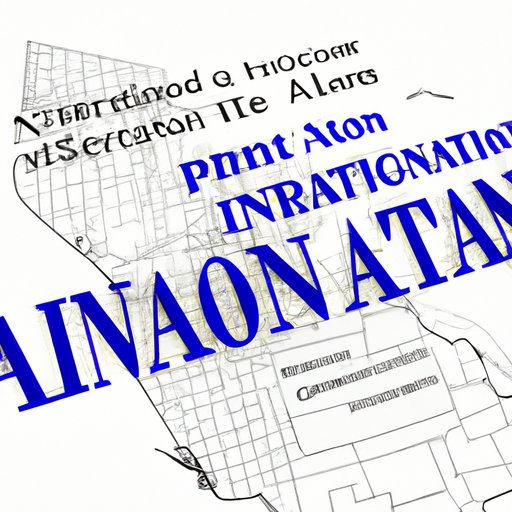An Overview of Advance Parole Travel Documents
Advance parole is a travel document issued by the United States Citizenship and Immigration Services (USCIS) that allows individuals who are not U.S. citizens or permanent residents to travel abroad and re-enter the United States without a visa. It is typically used by those who have pending applications for lawful permanent residency or other forms of immigration relief.

Definition of Advance Parole Document
An advance parole document is a type of travel authorization that allows people who are not U.S. citizens or permanent residents to travel outside the United States and re-enter the country without requiring a visa. It is issued by the USCIS and is valid for a limited time period. Individuals must reapply for a new advance parole document prior to its expiration date if they wish to continue traveling abroad.
Who Qualifies for an Advance Parole Document?
Those who may qualify for an advance parole document include those who have filed an application for adjustment of status, those who have a pending application for asylum, those who have applied for Deferred Action for Childhood Arrivals (DACA), and those who are applying for Temporary Protected Status (TPS). It is important to note that having an approved advance parole document does not guarantee admission into the United States upon return.
How to Use an Advance Parole Document for International Travel
Once an individual has been granted an advance parole document, they must follow certain steps in order to use the document for international travel. Here’s how:
Submitting the Application
The first step is to submit Form I-131, Application for Travel Document, to the USCIS. This form can be found on the USCIS website and must be filled out completely and accurately. The application must be accompanied by the appropriate filing fee as well as any supporting documentation.
Collecting the Approved Document
Once the application has been approved, the USCIS will mail the advance parole document to the applicant. It is important to ensure that the address provided on the application is accurate so that the document can be received without delay.
Presenting the Document at the Airport
When traveling abroad, the individual must present their advance parole document along with their passport at the airport. It is also important to carry any other documents related to their immigration case, such as their most recent Notice of Action or proof of their pending application.

Understanding the Requirements for Obtaining an Advance Parole Document
In order to obtain an advance parole document, there are certain criteria that must be met. Here are some of the eligibility requirements:
Eligibility Criteria
To be eligible for an advance parole document, the individual must have a pending application for adjustment of status, asylum, DACA, or TPS. They must also demonstrate that their absence from the US will not be detrimental to their immigration case. Additionally, they must prove that they are not likely to become a public charge while in the US.
Documentation Needed
Along with the completed Form I-131, applicants must provide evidence of their pending immigration case, such as a copy of their Notice of Action. They may also need to provide evidence of their financial stability, such as bank statements and tax returns.

Exploring the Benefits of Having an Advance Parole Document
Having an advance parole document has numerous benefits. Here are some of the top benefits:
Ability to Leave and Re-Enter the US without a Visa
One of the main benefits of having an advance parole document is that it allows the individual to leave and re-enter the US without needing a visa. This is particularly beneficial for those who do not have access to a visa or whose visa has expired.
Avoidance of Immigration Delays
Having an advance parole document also helps to avoid delays when attempting to enter the US. Without this document, individuals may experience long delays while their visa application is processed.
Common Questions about Advance Parole Documents
Here are some common questions about advance parole documents:
What is the Validity Period?
The validity period of an advance parole document varies depending on the individual’s situation. Generally, it is valid for one year from the date of issuance. However, it is important to check the expiration date on the document before traveling to ensure that it is still valid.

The Impact of Advance Parole on Immigration Status
Having an advance parole document can have an impact on an individual’s immigration status. Here are some of the potential impacts:
Maintaining Legal Status
Having an advance parole document can help an individual maintain their legal status in the US. This is especially true for those who are applying for a green card but who must travel outside the US while their application is being processed.
Effect on Naturalization Process
Using an advance parole document can also affect an individual’s naturalization process. Those who are applying for naturalization must be physically present in the US for at least half of the required time period. If they travel outside the US using an advance parole document, it can delay their naturalization process.
Impact on Other Immigration Benefits
Traveling outside the US using an advance parole document can also affect other immigration benefits, such as work authorization and travel privileges. Therefore, it is important to understand the implications of leaving the US before doing so.
(Note: Is this article not meeting your expectations? Do you have knowledge or insights to share? Unlock new opportunities and expand your reach by joining our authors team. Click Registration to join us and share your expertise with our readers.)
